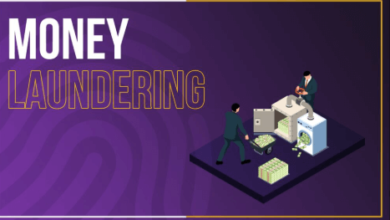Important Things to Keep in Mind for Businesses Filing Tax Returns Following an Extension

Businesses that want to petition for a tax extension may find that the procedure of filing taxes becomes much more complicated. An extension gives you more time to get the required paperwork and pay taxes after it’s granted, with an emphasis on Florida LLC filing and estimated tax payments for making wise financial decisions. However, it also means that you’ll need to prepare ahead of time to avoid problems. Making the most of tax breaks and maintaining compliance are often challenges faced by both independent contractors and business owners. This paper explores important topics for businesses in 2024.
Information About Tax Extensions
Businesses are given an extra time frame, usually six months, to file their tax returns through a tax extension. But it’s important to realize that a filing extension does not automatically mean a payment extension. Companies still have to estimate their taxes and pay them by the first day to avoid fines and interest.
Accurately anticipating taxes can be especially difficult for independent contractors and business owners. Because freelancers’ income fluctuates so much, it is challenging to project their annual revenues. Similar challenges confront business owners, particularly those who oversee several revenue streams. Although an extension necessitates careful preparation, it gives you additional time to gather your spending and income data.
Projected Income Tax Returns through 2024
Keeping track of projected tax payments is one of the most important parts of filing taxes after an extension. If a corporation or self-employed individual expects to owe the IRS $1,000 or more in taxes for the year, they must make quarterly tax payments. Missing these payments could result in fines and interest.
Businesses need to exercise prudence when predicting their tax payments for the 2024 tax year. Projecting costs, revenue, and potential deductions is necessary for this. Entrepreneurs should make sure that their accounting software is current, and independent contractors should meticulously track all of their earnings and outlays.
Think about implementing the following tactics to optimize tax savings:
1. Review Past Tax Returns: Analyzing prior tax returns may reveal trends in income and allowable expenses.
2. modify Withholdings: To prevent underpayment penalties, you should adjust your withholdings if your income has changed significantly.
3. Use Tax Software: With tax software, you may monitor deductions and plan for quarterly payments.
4. Speak with a Tax Professional: A tax advisor can offer tailored guidance and assist in locating possible deductions.
Application of Florida LLC
Businesses that operate as Florida LLCs are required to fulfill particular filing criteria. Annual reports to the Florida Department of State are a requirement for Florida LLCs. The state receives updated information from this report, guaranteeing the LLC’s ongoing good standing. There may be fines and potentially the LLC’s dissolution if the annual report is not submitted by the deadline.
Following a tax extension, Florida LLCs ought to undertake the following:
1. Verify Information: Make sure that the data in the yearly report is correct and current.
2. Achieve: The yearly report must be submitted by May 1st of each year. There will be a $400 late fee if this deadline is not met.
3. Keep Records: You need to keep thorough records of every company transaction in order to file your taxes and create your annual report.
Making the Most of Tax Benefits
One of the top priorities for independent contractors and business owners alike is to maximize their tax savings. Following an extension, the following are some tactics to think about:
1. Deductible Expenses: Compile a list of all the costs, such as travel, supplies, and home office expenses, that are deductible. Freelancers should be especially aware of these fees since it can drastically lower their taxable income.
2. Retirement Contributions: Funding a Solo 401(k) or SEP IRA, for example, may have a significant tax benefit. You can lower your taxable income by making these donations up until the extended filing deadline.
3. Health Savings Accounts (HSAs): Contributions to an HSA may be tax deductible, and withdrawals for eligible medical expenses may be made tax-free for individuals with high-deductible health plans.
4. Depreciation: Owners of businesses should benefit from depreciation deductions for assets like real estate and equipment. This can lower annual taxable income by spreading the cost of assets over the course of their useful life.
5. Tax Credits: Learn about the many tax credits that are available, such as the Research and Development (R&D) Tax Credit, as they can help creative businesses save a lot of money.
Typical Problems and Their Fixes
There are a few obstacles to overcome while filing taxes after an extension, but these can be avoided with smart planning:
1. Cash Flow Management: In order to pay taxes, there must be enough cash flow. Make a budget and put money aside throughout the year to prevent financial difficulties at tax time.
2. Record-Keeping: Compile and preserve an accounting of all your earnings, outlays, and deductions. There is a guarantee for filing simplicity and accuracy.
3. Tax Law Changes: Keep yourself updated on any modifications to the tax code that might have an effect on your company. Tax regulations can change every year, which could have an impact on credits, filing dates, and permitted deductions.
4. Specialist Advice: To handle complicated tax problems, think about speaking with a tax specialist. A specialist can guarantee regulatory compliance and offer informed advice.
Verdict
Careful preparation and attention to detail are required when filing taxes following a tax extension. Managing projected tax payments through 2024 and fulfilling Florida LLC registration requirements are crucial steps for independent contractors and business owners. Businesses may guarantee a seamless and compliant tax filing procedure by comprehending the subtleties of tax extensions, optimizing tax savings, and overcoming typical obstacles. These factors will help you, whether you’re a self-employed individual with fluctuating income or a business owner with several revenue streams, to confidently handle the complexity of tax season.





